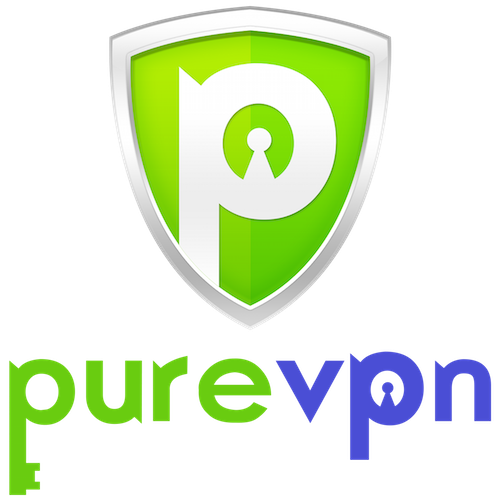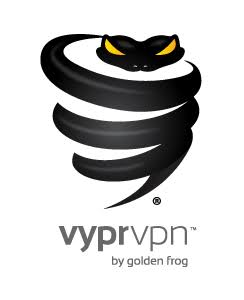Fastest VPNs (2024)

- Always evades internet control in the PRC
- Keeps ahead of the Netflix VPN detection algorithm
- Benchmark tests show excellent speed

- More US city locations than its rivals
- Includes malware protection
- No-logs policy

- No limit on the number of devices you can connect at the same time
- SOCKS5 proxy, which its main rivals don’t have
- More VPN servers in more US cities to dodge blackouts
Net neutrality legislation (passed in 2017) settled the issue: You no longer own your data. Your clicks, searches, and purchases belongs to your Internet service provider (ISP). ISPs who once hesitated to broker personal information are now trading the burdens of privacy protection for profit. In response, many consumers are turning to VPNs—virtual private networks — to protect their privacy while preserving access to the Web.
What a VPN is… and what it isn’t
First of all, you still have to keep your regular ISP. Using a VPN will not replace your ISP’s dollars-per-month bill, but a good VPN will act as a cloaking device. All your ISP will see is you accessing whatever your VPN decides to display while you connect to your desired Internet destination.
Second, most reputable VPNs will charge a subscription fee for a reason. You use their services, often referred to as a tunnel to the Internet. They now own your data, so you’re paying them to protect your privacy.
Next, your VPN essentially becomes your encrypted proxy. Wherever your VPN is, that is also where the Internet considers you to be. All roads tracking your Internet activity will lead back to your VPN.
Finally, because a VPN uses encryption, you can file-share and download securely to heart’s content—even from public WiFi hotspots—as long as your VPN supports peer-to-peer (P2P) file-sharing.
The trade-off to all of this, of course, is that all that encryption and additional layers of security can slow Internet access. That’s why it pays to know exactly which VPNs are most likely to keep you not only safe and secure but also up to speed. Here are our top picks, some need-to-know specs, and a few nods to what makes them special.
Choosing a VPN
Political, societal, and technological shifts only increase the importance of security, anonymity, data usage, P2P file-sharing, torrenting capabilities, and bandwidth and speed. Subscription prices vary from the free—and often slow, insecure, and risky—to the pricey. However, quality VPN providers tend to differ by only a few dollars. When looking for your plan, be sure to consider the following:
- Security—at least 256-bit encryption.
- Compatibility with hardware and software.
- Server and IP address availability and location.
- Country of registration and data retention laws.
- Bandwidth or data restrictions, including throttling.
- Servers specified for P2P file-sharing, torrenting or other designations.
- Firewalls.
- Proxies like SOCKS5.
- Kill switches.
- Split tunneling and capabilities for manual configurations.
- Customer service and support.
Considering speed with VPNs
When it comes to speed, remember that a VPN simply puts a different license plate on your carload of data in the flow of traffic. The best VPNs won’t slow you down by much. However, you may sometimes have to weigh security against speed, and any VPN still relies on the underlying download and upload speeds that your ISP allows.
1. ExpressVPN

- Always evades internet control in the PRC
- Keeps ahead of the Netflix VPN detection algorithm
- Benchmark tests show excellent speed
ExpressVPN is a great first pick in a test of VPN speed because we can start with its VPN Speed Test. This convenient menu tool sorts the servers and assigns each a speed index based on two critical factors:
- Latency — the milliseconds’ data travels between your device and a VPN server
- Download speed — how many kilobits per second or Kbps.
Pros
- Installs on routers
- Simultaneous connection allowance of five devices
- Split tunneling
- Large choice of server location
- Very strong connection encryption
Cons
- One of the most expensive VPN services
- China blocks its main website (but not functionality)
- Live chat support is not always responsive
Based in the British Virgin Islands, Express supplies more than 1,000 servers in 145 VPN server locations in 94 countries. Just run your speed test and star your favorites.
This VPN is known for its balance of HD streaming capabilities, P2P file-sharing, and security measures. It supports all devices, from mobiles and desktops to routers, and any connection— wired Wi-Fi or cellular. It allows three simultaneous connections, making it the most limited of our top picks (however, one of those can be a router). As for its other features, you can count on:
- Compatibility with Windows, Mac, iOS, Android, Linux, and routers.
- Protocols OpenVPN TCP/UDP, SSTP, L2TP/IPsec, and PPTP.
- AES-256-bit encryption ingoing and outgoing.
- Unlimited bandwidth, speed, and server switches.
- DNS Leak Test tool and Express support to eliminate any leaks.
- Network Lock, ExpressVPN’s kill switch for Windows and Mac.
- Shared IP addresses.
- Split tunneling and inverse split tunneling to protect specified connections.
- Supports VoIP.
- P2P and torrent-friendly.
- Zero logging, with traffic mixing. Terms of service state that they do track connection dates, server, and quantity of data strictly for analytics.
- A full menu of payment options including credit card, Bitcoin, PayPal, and more.
- Intuitive website with plenty of informative screenshots and help.
- Round-the-clock customer support via live chat or email.
2. NordVPN

- More US city locations than its rivals
- Includes malware protection
- No-logs policy
Like the other six on our list, NordVPN uses AES-256-bit encryption for all traffic, both incoming and outgoing. However, this VPN adds a second layer to act as a double VPN, encrypting data flowing between your device and your first DNS server and then again at a second server before the traffic meets the Internet. Incoming simply reverses the process.
Pros
- A large number of servers
- Threat protection with a proprietary security system called CyberSec
- Split tunneling
- Obfuscated servers for China and other locations where VPNs are discouraged
- No-logs policy
- Automatic wi-fi protection
Cons
- Parts of the server network have poor download speeds
- No servers in India
- Onion over VPN can be slow
Just five years old and based in Panama, NordVPN has about 1,000 servers in 59 countries. It is one of the most generous of our picks, allowing an impressive six simultaneous connections. However, each must use a different protocol. You have four options—OpenVPN TCP/UDP, L2TP, and PPTP—so basically, if you want to use all six devices at once, you’ll have to split between two or more servers. Nord does support routers—which count as one—as well as all other mobile and desktop devices. As for the features rundown, NordVPN offers:
- Compatibility with Windows, Mac, Android and iOS, with custom software available.
- Protocols OpenVPN TCP/UDP, L2TP and PPTP; limited IKEv2/IPsec. IPv6 support anticipated for 2017.
- AES-256-bit double-layer encryption ingoing and outgoing.
- Unlimited bandwidth and speed.
- Automatic kill switch for Windows, Mac and iOS.
- Identified double VPN, Onion over VPN, anti-DDoS, dedicated IP, standard VPN and P2P servers.
- Ultra Fast TV and P2P-optimized servers; allows torrenting.
- Supports VoIP.
- Supports SOCKS5 and HTTPS proxy servers.
- Smart Play secure proxies to circumvent geoblocking and allow content streaming.
- Option for add-on dedicated IP server and static IP address in U.S., U.K., Germany or Netherlands.
- Zero logging.
- Full menu of payment options including credit cards, Bitcoin, PayPal and more on Paymentwall.
- Well-maintained website with helpful FAQs page and supplements.
- 24/7 customer support via live chat, email, Nord’s ticket system, Facebook or Twitter.
3. IPVanish

- No limit on the number of devices you can connect at the same time
- SOCKS5 proxy, which its main rivals don’t have
- More VPN servers in more US cities to dodge blackouts
IPVanish is based in Florida’s Orange County. IPVanish is known for its speed and being torrenting- and P2P-friendly—making it a favorite for gamers. The company boasts more than 750 servers in at least 60 countries, with more than 40,000 IPs total and at least 10 unique—often more—shareable IP addresses per server.
Pros
- Good at dodging blackouts on US sports streaming sites
- A large IP address pool
- Split tunneling available
- Strong IP leak protection
- IPVanish support is available around the clock via chat and email
Cons
- No app for Linux
- No browser extensions
- 30-day money-back guarantee only for the annual plan
- Prices increase after the first subscription period
- No malware or antivirus service
IPVanish allows five simultaneous connections on multiple devices—including routers—on the four protocols—OpenVPN TCP/UDP, L2TP, and PPTP—as well as IPSec and IKEv2 for iOS. IPVanish includes SOCKS5 in all its plans, which means that you have the option of passing traffic—downloading torrents, for example—through an anonymous high-speed, offshore proxy. In addition, the service includes:
- Compatibility with Windows, Mac, iOS, Android, Linux Ubuntu, and Chromebook.
- Protocols OpenVPN TCP/UDP, L2TP, and PPTP; IPSec and IKEv2 for iOS and IPv4.
- AES-256-bit encryption ingoing and outgoing.
- Unlimited bandwidth and server switching.
- SOCKS5 proxy.
- IP address cycling.
- Support of VoIP.
- Unlimited P2P supporting BitTorrent.
- NAT firewall.
- Kill switch for Mac OS X and Windows.
- No traffic logs.
- Extensive payment options including credit card, Bitcoin, PayPal, and many others.
- Extensive website. Technical information, however, can be hard to find.
- Support available through email. When we checked, there was a wait of about 36 hours.
4. PureVPN

- Excellent client with pre-configured modes for streaming, P2P, privacy
- Kill switch
- Support for wide range of protocols, including OpenVPN
Celebrating “10 years of security,” PureVPN claims more than a million users and promises them “complete freedom” and “world-class” security on both a personal and business scale. The company is based in Hong Kong, which has no mandatory data retention laws—why many individuals choose a VPN in the first place.
Pros
- Excellent client with pre-configured modes for streaming, P2P, privacy
- Kill switch
- Support for wide range of protocols, including OpenVPN
- Great for newbies and experienced users alike
- Wide server coverage
- Good speeds
- 24/7 support
- Accepts Bitcoin
Cons
- No free trial
- 7-day money-back guarantee comes with restrictions
- No Netflix
- No BBC iPlayer
- Client is not as “one-click” as advertised, and troubleshooting requires technical skills
Meanwhile, PureVPN is a connectivity maven. Its network covers 141 countries with 180 locations and more than 750 servers. It allows five simultaneous connections for more than 20 different devices. Its virtual router feature allows you to turn any Windows laptop or desktop into a virtual router for up to 10 devices. On top of that, PureVPN writes its own code for all the major platforms and uses no third parties for actual data transfer. PureVPN covers all the major desirables like:
- Compatibility with Windows, Mac, iOS, Android and Linux.
- Selection of protocols—OpenVPN TCP/UDP, PPTP, L2TP, IKEv2/IPsec and Stealth.
- IPv6 leak protection for Windows and Mac.
- AES-256-bit encryption ingoing and outgoing.
- Unlimited bandwidth, data transfer and server switching.
- Split tunneling for Windows and Android.
- File-sharing limited to designated servers.
- Kill switch for Windows and Mac.
- Optional add-on dedicated IP and static IP address.
- Zero logs.
- Extensive payment options—credit cards, PayPal, Alipay, assorted Bitcoin businesses, Paymentwall and Cashu.
- Very user-friendly, intuitive website with search option.
- 24/7 live chat pop-up for support.
5. VPNArea

- The cell phone app worked seamlessly
- Customer service seemed genuinely interested in helping
- 24/7 Live Chat
Based in Bulgaria, VPNArea opened shop in 2012, with its headquarters servers and email hosted in Switzerland. The company is committed to maintaining a speedy customer-to-server ratio, citing a server for every 250 customers. It’s now up to more than 200 servers in 68 countries and more than 10,000 IP addresses.
Pros
- The cell phone app worked seamlessly
- Customer service seemed genuinely interested in helping
- 24/7 Live Chat
- Privacy is protected; they’re not part of the 14 eyes and don’t log data
- Fully autonomous iOS app for iPhone/iPad on App Store
- Desktop app for Mac and Windows (no always-on-top, no leaks, new design)
Cons
- Download instructions confusing; must be followed closely for program to work
Another generous VPN provider, VPNArea allows you six simultaneous connections for your favorite devices, including routers, through OpenVPN TCP/UDP, PPTP, or L2TP. It also offers its own Chameleon app for Windows. Like a number of other providers—but not all—VPNArea’s service includes a kill switch system; if your VPN service drops for some reason, your IP address will remain protected. VPNArea’s service also provides:
- Compatibility with Windows, Mac, Android, iOS, and Linux.
- Protocols OpenVPN TCP/UDP, PPTP, or L2TP.
- IPv6 and WebRTC leak protection.
- Chameleon OpenVPN software for Windows.
- AES-256-bit encryption ingoing and outgoing.
- Unlimited bandwidth and server switching.
- Shared IPs, with adjustable auto random IP changer.
- Speed test with ping and download as well as users online server load monitor.
- Kill switch system.
- P2P permitted on specified servers.
- Account sharing.
- Custom business accounts available.
- Optional add-on private VPN server with dedicated IP address $15 a year.
- No logs.
- Payment options limited to Visa, MasterCard, PayPal, Payza, and Bitcoin.
- 24/7 support available through live chat, email, and Skype.
6. VyprVPN

- Golden Frog, the business behind VyprVPN also runs a gaming platform
- VyprVPN pioneered obfuscation techniques and they have always worked well
- VyprVPN’s no logs policy is confirmed by an independent audit
VyprVPN is actually a Golden Frog creation incorporated in Switzerland, which—as the Golden Frog site explains—has established safe harbors with the EU, the U.S., and other countries. These folks take their security seriously. Their own inhouse engineers write their code. They own and manage all their own hardware and software and keep their operation inhouse, with no third parties. They’ve got more than 700 servers and 200,000 IP addresses spanning the globe, providing end-to-end privacy.
Pros
- Dodges detection, even in China
- Simultaneous connection allowance of ten devices
- Split tunneling
- Large choice of VPN server locations
- Can unblock a lot of premium streaming services
Cons
- One of the most expensive VPN services
- No VyprVPN app for Linux or Chrome OS
- No browser extensions
- Can’t get into Disney+, ABC, NBC, or Channel 4
If you want a pro bono download of a GB to try out the VPN, you can sign up for VyperVPN Free. Just choose your app on the website—it works for desktops as well as iOS and Android. You can have two simultaneous connections and access to the Cypher encrypted messaging app. It’s a one-time deal, but you can easily upgrade to a subscription.
A lot of confusion exists over the feature of split tunneling, and Vypr is no exception. At its simplest, the practice allows users to include or exclude certain devices or programs, placing some under VPN protection while allowing others to interface or stream directly from your ISP. Not all VPNs even offer it. The configuration that VyprVPN uses allows split tunneling by app. In addition, a subscription comes with:
- Compatibility with Windows, Mac, iOS, Android, Linux, TVs, OpenELEC smart devices, routers, and more.
- Protocols OpenVPN TCP/UDP, L2TP/IPsec, PPTP, and Chameleon.
- 256-bit encryption.
- Unlimited bandwidth, speed, and server switching.
- Golden Frog-optimized code for modern broadband connections.
- NAT Firewall.
- SOCKS5 proxy supported.
- Dynamic server switching.
- Kill switch in Windows and Mac.
- Split tunneling for apps but not servers or devices.
- Desktop and mobile apps, including Blackphone and Anonabox.
- Chameleon proprietary metadata scrambler for Windows, Mac, Android, and routers.
- Zero-knowledge VyperDNS service preserves privacy and geolocational access, defeats censorship and geoblocking.
- User-friendly, highly informative website with everything in the right place—just where you’d put it.
- No logs.
- End-to-end code, ownership, and management.